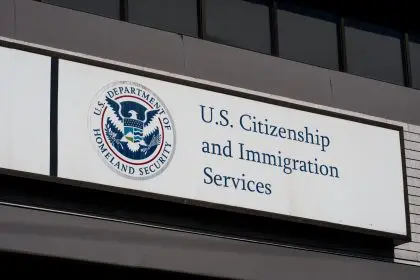As the Trump administration prepares for a potential wave of mass deportations following the inauguration on Jan. 20, 2025, Los Angeles Mayor Karen Bass has voiced grave concerns about the economic repercussions for the city. Mayor Bass emphasized that the economy of Los Angeles, which relies heavily on its immigrant population, could face a severe downturn if undocumented workers are forced to leave.
The role of immigrant labor in the economy
Economists have long recognized the critical role that migrant labor plays in supporting the national economy, particularly in urban areas. Mayor Bass highlighted that Los Angeles has a significant immigrant and undocumented population, which is integral to the city’s workforce. The potential loss of these workers could lead to a labor shortage, driving up wages as employers compete for a dwindling pool of applicants.
Allan Boomer, chief investment officer at Momentum Advisors, explained that a reduction in available workers would force employers to increase wages to attract new hires. This rise in labor costs could lead businesses to either cut their profits or raise prices, ultimately impacting consumers.
Impact on Black communities
Marc Morial, president and CEO of the National Urban League, warned that the economic fallout from mass deportations would disproportionately affect Black communities. He stated, per TheGrio, “Anything that raises consumer prices on necessities will hit Black Americans hard,” pointing to the increased cost of living for essential items like food and household goods.
Sanctuary cities and local responses
In response to the looming threat of deportations, Los Angeles is considering codifying its status as a sanctuary city. This designation would legally protect undocumented immigrants by prohibiting city resources from being used to assist federal immigration enforcement. Sanctuary cities across the nation, including New York City and Washington, D.C., have implemented similar measures to safeguard their immigrant populations.
Despite these protective measures, Mayor Bass expressed that the fear of mass deportations creates a ripple effect throughout the community. She warned that if deportations occur, the city could experience significant economic disruption, especially if the Trump administration retaliates against sanctuary cities by withholding federal funding.
Trade policies and economic consequences
In addition to the immediate effects of mass deportations, the Trump administration’s trade policies are also expected to impact the economy. President-elect Trump has proposed tariffs on goods from Canada and Mexico, which could further inflate consumer prices. Boomer noted that both tariffs and mass deportations are inflationary, meaning that the costs will ultimately be passed on to American consumers.
As the nation braces for these potential changes, the economic landscape for Los Angeles and its immigrant communities remains uncertain. The intersection of immigration policy and economic stability is a pressing issue that requires attention from policymakers and community leaders alike.
The anticipated mass deportations under the Trump administration pose a significant threat not only to the immigrant community but also to the broader economy of Los Angeles. As local leaders work to protect their communities, the potential economic fallout highlights the need for a comprehensive approach to immigration reform that considers the contributions of all workers.
In the face of these challenges, it is crucial for communities to unite and advocate for policies that promote equity and support for all residents, regardless of their immigration status.

















